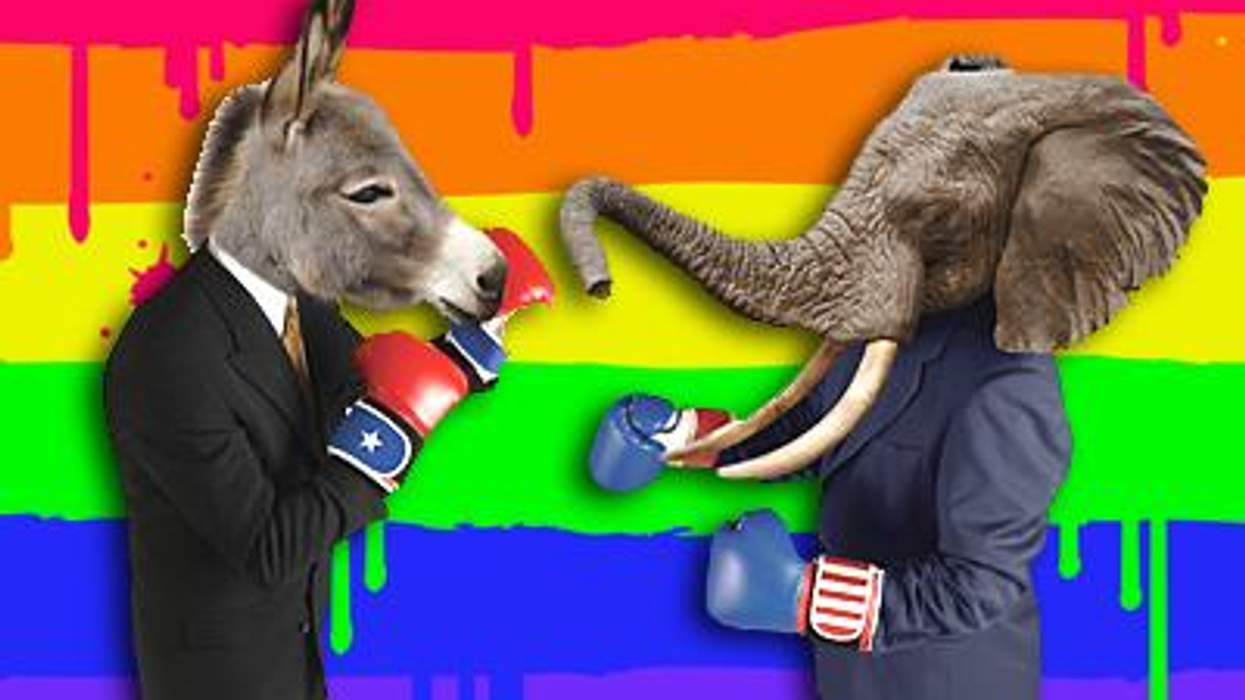A new survey conducted by Harris Interactive for Logo TV found that all political candidates could benefit from supporting LGBT equality. The poll was conducted earlier this month and surveyed nearly 3,000 people -- almost half of whom self-identified as LGBT.
The poll found that a candidate's position on LGBT rights influences a voter's likelihood to support them. When asked if Mitt Romney hypothetically held the same positions as Barack Obama on LGBT rights, 22% of LGBT voters said they would be more likely to vote for the presumptive Republican nominee. A follow-up question concluded that 26% of LGBT voters would be more likely to vote for Republican candidates if the party held the same position on LGBT equality as does the Democratic Party.
Among general population voters, 49% said they would be more likely to vote for a candidate who supported legislation to define and prevent bullying of LGBT students. Forty-eight percent said they would be more likely to support a candidate who supported laws prohibiting workplace discrimination against gays and lesbians.
Another question reaffirmed several recent polls which have found a slight majority of American voters support same-sex marriage. The Logo poll found support for same-sex marriage at 52% among likely voters and opposition at 40%.
Kenneth Sherrill, professor emeritus of political science at Hunter College at the City University of New York, told Logo, "This survey documents a political transformation of epic proportions. LGBT rights are no longer a wedge issue in American politics."
The poll also found that LGBT and straight voters alike are primarily concerned about the economy, unemployment, and health care, indicating those will be the deciding factors in how they cast their ballot in November.
Jonathan Capehart, a gay columnist at the The Washington Post, predicted the fate of the Republican Party if it doesn't catch up with the culture regarding social issues:
"As long as the Republican Party closes itself off from potential voters who might like its melody but hate its lyrics, it will continue its metamorphosis into a regional, reactionary bloc whose doctrinaire positions are incompatible with a diverse democracy."





































































Charlie Kirk DID say stoning gay people was the 'perfect law' — and these other heinous quotes